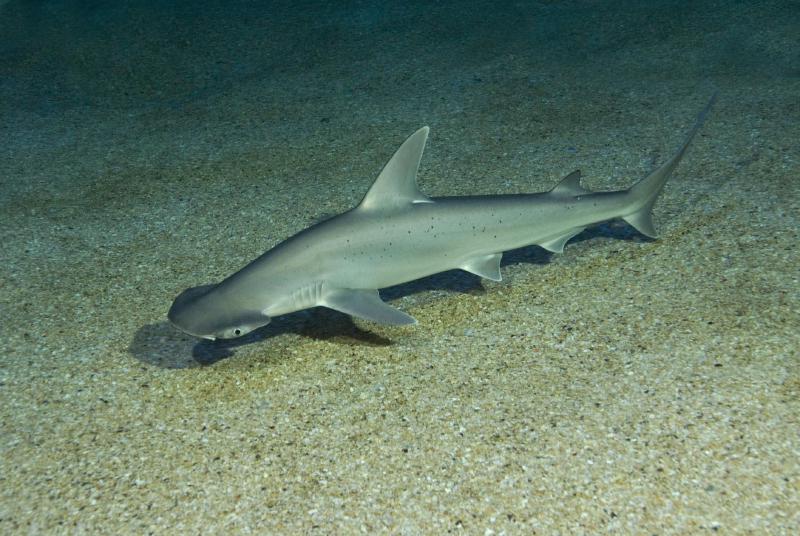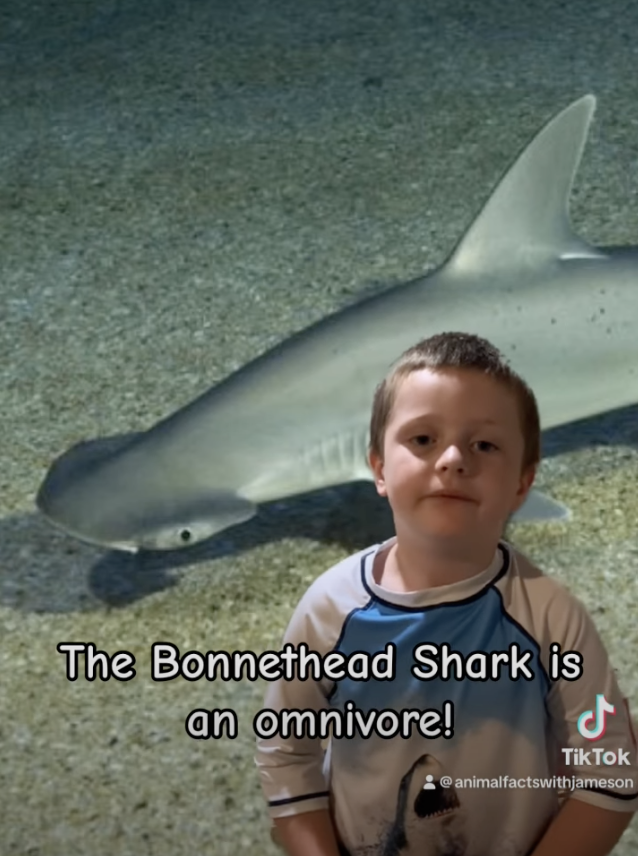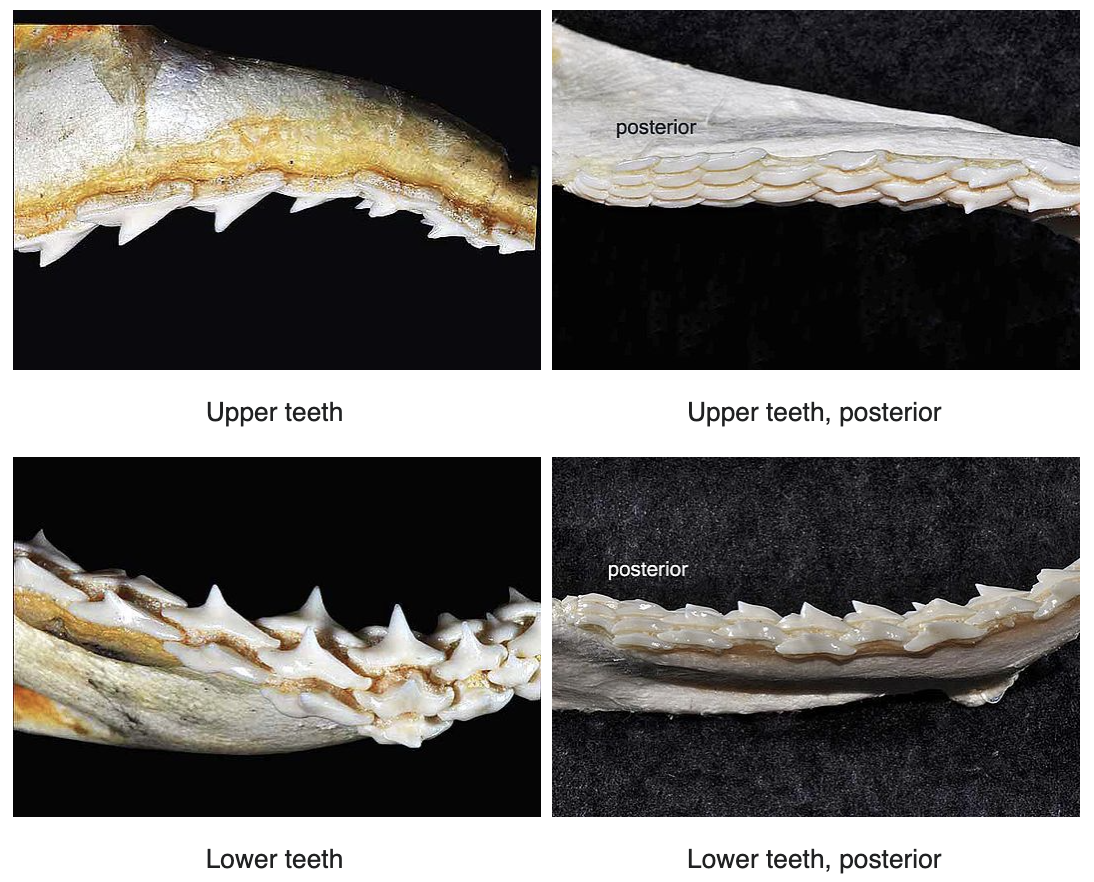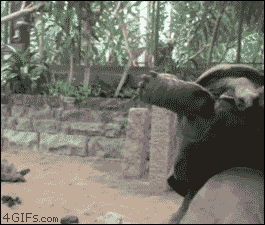Hello and welcome to another Fun Fact From Flora ,
Today we are going to look at a shark that is after my own heart. This is the bonnethead shark.
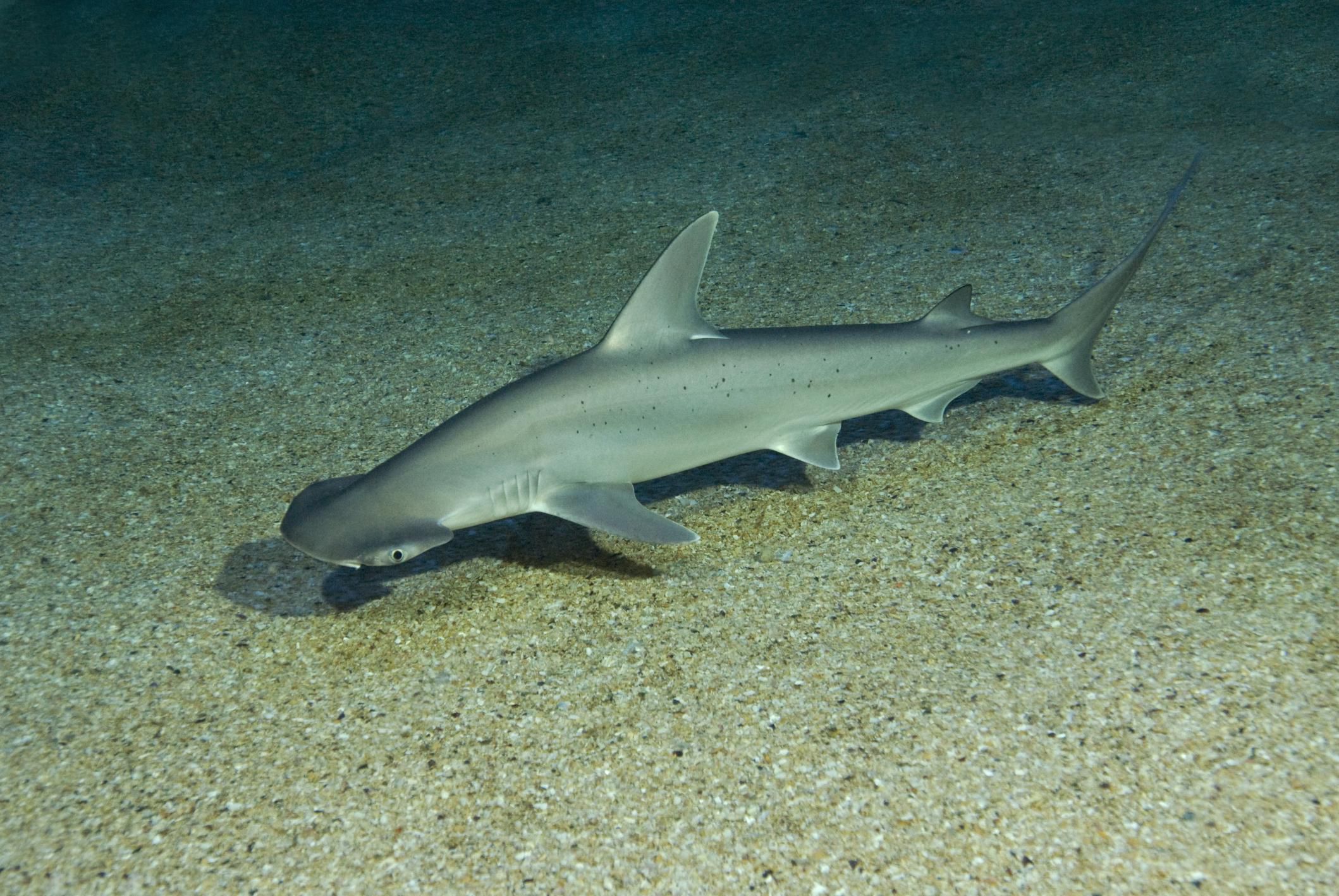
This is what they look like.
Sort of like evolution got partway towards a hammerhead shark and then got bored and took a break. It has the smallest cephalofoil (the proper name for the hammer-head) of any of the hammerhead sharks. It is actually a pretty small dude (for shark standards at least), typically ranging 80-90cm.
And, come on, are they not just BLOOMIN" adorable ??
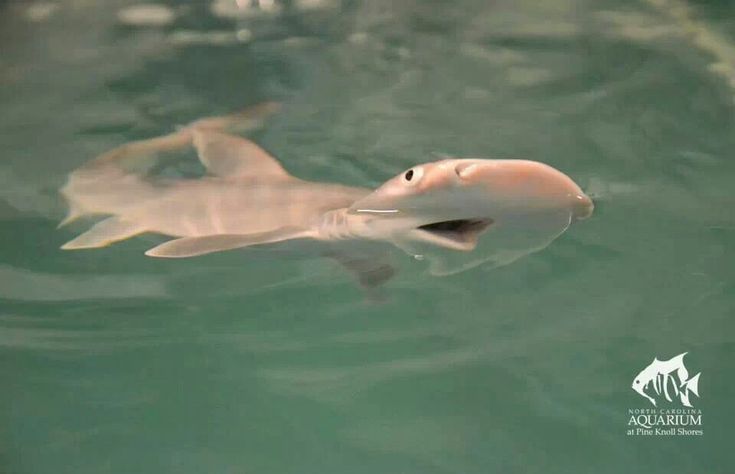
But they are very unusual in what they eat. According to this highly reputable video
Shoutout to Jameson and his excellent content.
But do not worry, I have not based this fact on the home-produced video of a 5-year-old YouTube star, there are more people than just Jameson who are aware of this shark’s unusual dietary requirements.
Now, we have known that bonnetheads occasionally munch on some seagrass for a little while, but scientists first assumed that it was incidental or did not really provide much nutrition for the sharks. Kind of like how cats eat grass (we think to get rid of gut parasites and hair balls by increasing muscle activity in the gut!! So many fun facts today!!).
But when some research was done by scientists at the University of California and Florida International University they found that, alongside eating some fish, shrimp and crabs, typically around 60% of their diet is actually seagrass.
60 whole percent!! MORE than HALF of their food!!
Therefore, these sharks are actually using the seagrass for its nutritional value , not just accidentally snagging some greens alongside their main course.
But, as anyone who’s eaten cabbage knows, vegetables can be pretty fibrous. There is a lot of structure that needs to be broken down to access their vetegably goodness and shark teeth are not designed for that. Think of a sheep or cows teeth, very flat and sturdy to grind tough grass down to a pulp.
And now look at what the poor bonnethead is working with.
Yeah. So it seems most likely that they have incredibly strong stomach acid that is able to break down the cellulose and the starch in the seagrass and access all of those tasty nutrients.
In addition, the research team (study here) used a very cool trick of lacing the seagrass with a specific carbon isotope , so they could track where the seagrass was going in the shark’s body and therefore what it was being used for (metabolically speaking). Turns out the shark’s blood and liver tissue was very high in the altered carbon isotope, showing that those digested compounds were actually being used to build and maintain the sharks.
Definitely not an accidental monching.

Now this has pretty wild implications for sharks. Previously, only fictitious sharks were vegetarianally inclined.


And I am so here to dispel the myth that sharks are all blood-thirsty killing machines. Some of them just like to snack on some good ol" fashioned vegetables.
Also, we can add another thing to the (extremely) long list of why we need to love our seagrass meadows and keep them safe from human problematic-ness. More on seagrasses later.
Thanks for stopping by.
Lots of veggie, sharky love,
Flora xxx
